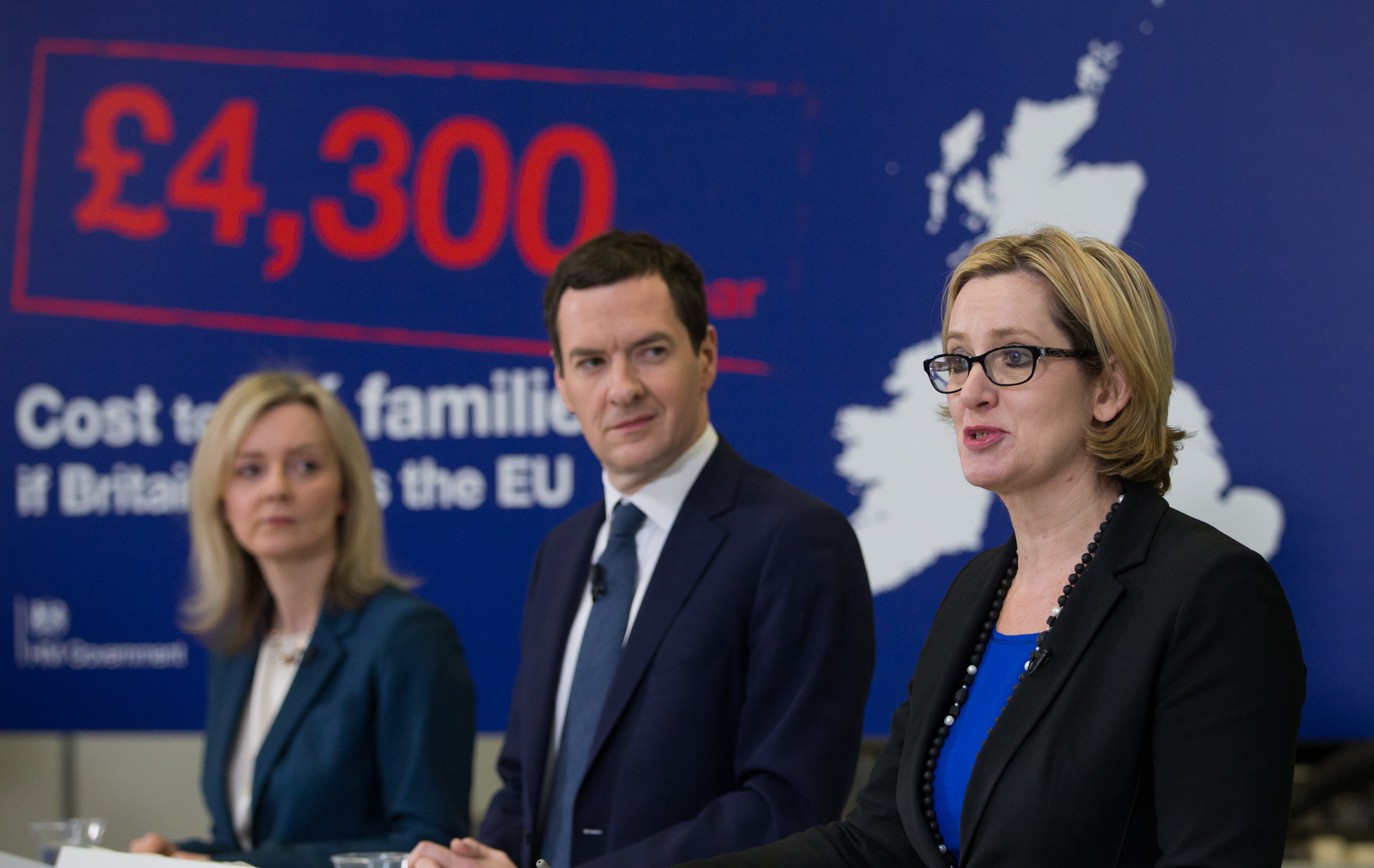The despicable scare tactics of 'Brexit' opponents
Britain's elite are trying to spook voters into remaining in the European Union


A free daily email with the biggest news stories of the day – and the best features from TheWeek.com
You are now subscribed
Your newsletter sign-up was successful
"If Britain leaves the European Union, every family would lose £4,300 [$6,100]."
This headline, or some variation on it, has been gyrating across the internet, thanks to a new "study" put out by Britain's Treasury measuring the impact of the controversial proposal for Britain to exit the EU — also known as "Brexit." According to the study, by 2030, Britain's economy will have been made so much worse off by leaving the EU that the government will have to hike income taxes by 8 percent to fill the deficit hole.
George Osborne, Britain's Chancellor of the Exchequer (the equivalent of a finance minister), announced the study at a press conference Monday morning while standing in front of a large placard with "£4,300" scrawled in large red numbers. He said the findings brought "facts" to the debate, and went on to blast Brexit supporters (of whom I count myself) as "economically illiterate."
The Week
Escape your echo chamber. Get the facts behind the news, plus analysis from multiple perspectives.

Sign up for The Week's Free Newsletters
From our morning news briefing to a weekly Good News Newsletter, get the best of The Week delivered directly to your inbox.
From our morning news briefing to a weekly Good News Newsletter, get the best of The Week delivered directly to your inbox.
This assertion, and the statistics propelling it, are unsubstantiated, click-baity nonsense. A study with a model purporting to be able to predict the impact Brexit could have on Britain's GDP and tax policy in 2030 is about as close to "fact" as Harry Potter is close to a documentary. If Britain's Treasury economists knew every possible economic datum that could affect GDP and the deficit nearly 15 years out, they'd be hedge fund billionaires by now.
But regardless of the study, this is an interesting moment in European and British politics. The members of Britain's "Remain" coalition are so well aware of how unpopular the EU is in Britain and throughout Europe at large, that they believe the only tack they have left is scare tactics.
This is a replay of Britain's referendum on Scottish independence, where political elites who had spent decades badmouthing the idea of the nation state suddenly found themselves at a loss to explain why so many Britons — which is what pro-independence Scots are — told them to take their nation state and shove it. Incapable of articulating a good reason why Britain is (to reprise an old slogan) "better together," they resorted to fear mongering, warning of all the cataclysms Scottish independence would surely cause.
The future of the European project seems to be a story about an unstoppable force meeting an unmovable object. The European project is absolutely exhausted. Nobody believes in it anymore, except a tiny out-of-touch elite who despise their countrymen and whose countrymen despise them. But the EU's institutional supports and safeguards are so strong, it seems impossible to get out.
A free daily email with the biggest news stories of the day – and the best features from TheWeek.com
And so it is with the Brexit campaign. Britons don't want to stay in the EU, but their political, economic, and media elites are all in the tank for the EU's supranational project, and will spend so much time scaring the public with outlandish Bogeyman stories that they will narrowly vote to stay in.
Elites always win in the end. Until the revolution, that is.
Pascal-Emmanuel Gobry is a writer and fellow at the Ethics and Public Policy Center. His writing has appeared at Forbes, The Atlantic, First Things, Commentary Magazine, The Daily Beast, The Federalist, Quartz, and other places. He lives in Paris with his beloved wife and daughter.
